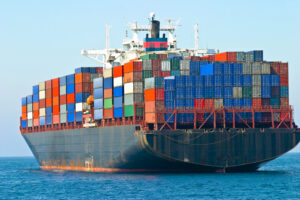The recent Houthi attacks are impacting the container shipping sector as leading shipping entities temporarily halt transits through the Suez Canal.
The container liners are essentially instructing their vessels to avoid transiting through the Suez Canal and around the Cape of Good Hope adding quite a significant delay and time to their East to West trade journeys.
Container xChange, the online container logistics platform, said an additional 40% longer route, causing heavy upward pressure in the operating costs is expected to persist, as the shipping time extends anywhere between one to four weeks due to the longer route.
Recent disruptions are poised to escalate operational costs, adding significant strain, while concurrently exerting downward pressure on profits.
“As of now, the traffic at the Suez Canal and the Red Sea looks healthy but that can turn around very quickly. If we go by history, then the situation of the Ever Given did create a lot of traffic jam a few years ago, the repercussions of which were felt for months,” expressed Christian Roeloffs, cofounder and CEO of Container xChange.
Now the shares of shipping lines have jumped in anticipation of a post-Covid disruption revival, added Roeloffs.
“It will all depend on how navies take this up. Egypt has a significant commercial interest in the functioning of the Suez Canal as it is one of the main revenue drivers and if the diversion happens then it will have a significant impact there,” Roeloffs added.
“About 30% of Israeli imports come through the Red Sea on container vessels that are booked two to three months in advance for consumer or other products, meaning that if the voyage will now be extended, products with a shelf life of two to three months will not be worthwhile importing from the Far East,” said Yoni Essakov, who sits on the executive committee of the Israeli Chamber of Shipping.
“Importers will need to increase stock due to the uncertainty and pay much more and others will lose out on their markets as time to market is not competitive,” Essakov added.



